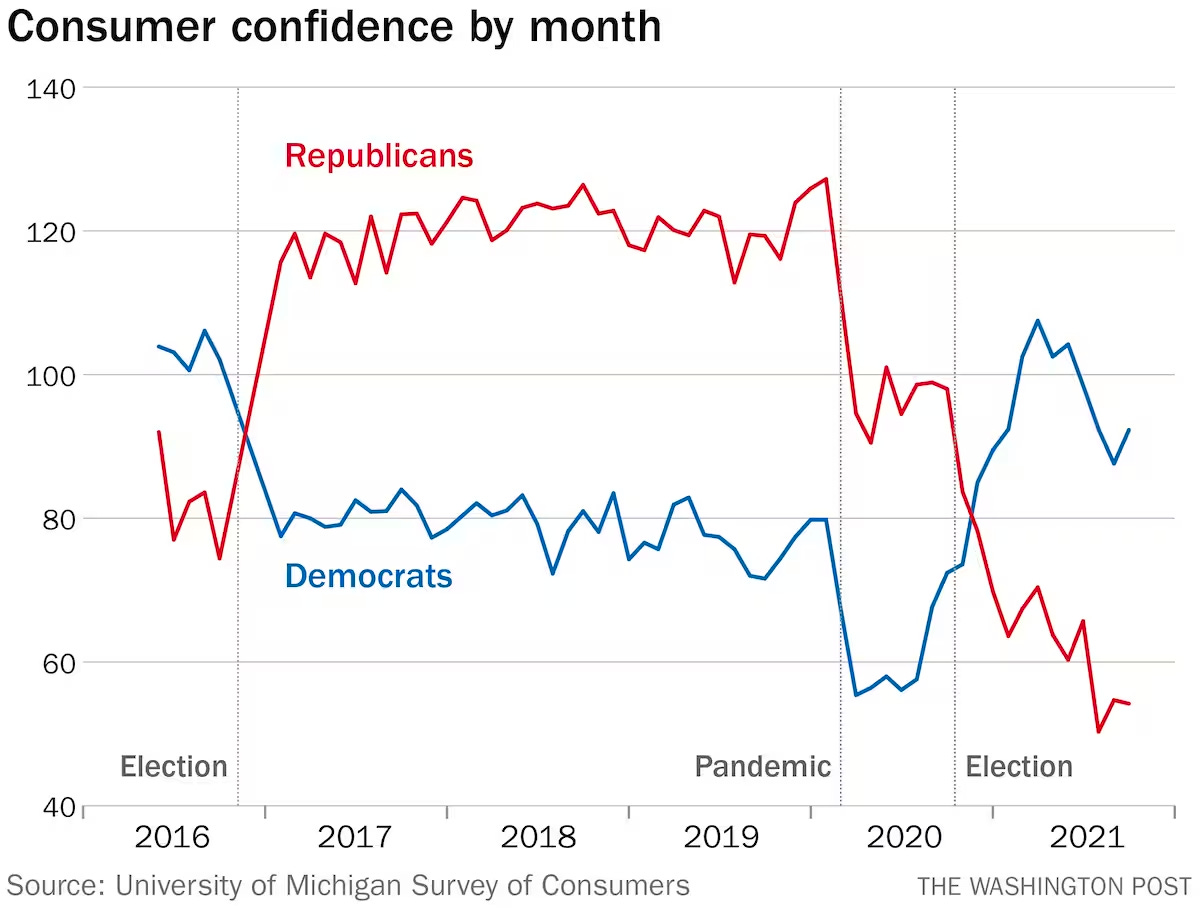What Captain America checking out his own butt has to teach us about our divisions.
Marvel had the Multiverse. Welcome to the Factiverse.
Welcome to the always free, reader-supported mid-week edition of The Experiment. If you’d like to support my work, buy my Alamo book, buy some Experiment merch, drop some coins in the PayPal fountain, or become a paid subscriber. But even if you don’t, this bugga free.
It’s scary how close I came to not writing about Captain America’s butt.
This week I was like a mediocre baseball team. Something you hear in Spring Training when the manager is hoping to find five solid and reliable pitchers from a group of 10 or so mediocre ones is that if anything he has too much pitching.
If anything, I had too many ideas for the weekend essay. I thought about writing about why a “both sides” approach might be best for Israel and Palestine, which is hard because we’ve gotten used to “both sides” as a device to obscure truth and accountability. Then there was the idea — what was it again? — oh yeah, why political punditry is so bad (those with the expertise and insider knowledge have motivated reasoning, and those with unbiased opinions have no working knowledge of how government or campaigns really work). And then there was the Texas school that said a trans boy couldn’t play the lead in Oklahoma! and that all roles must be played by actors with private parts that corresponded to the sex of the fictional characters. I mean, the next thing you know there might be queer people in musical theater!1
It was in a jangly state of unreadiness that I retreated to the couch last night to see if scotch still tasted good2 and turned on Loki, the television show about Thor’s mischievous brother. Remember in the 2019 movie Avengers: Endgame in which Loki is arrested for stealing the Tesseract? In the movie, he simply disappears, and then I think we witnessed the sublimated homoeroticism of Captain America tapping out Captain America.3
The television show Loki imagines what happens while we’re watching Steve Rogers check out his own booty. Loki is taken to Time Variance Authority, a regulatory organization that exists outside of time and space and monitors the timeline. Loki, you see, has messed up the timeline, creating branches that split off and intersect with each other. It’s a big problem, what with different realities of the same events banging into each other. The universe threatened to spin into chaos.
All of this seemed like harmless yammering until they showed the picture of the broken timeline. Instead of an intact timeline in which we’re all sharing the same reality, different realities were splitting off and taking over like kudzu. And that’s when it hit me: That’s us, but with facts. The Marvel Cinematic Universe has the Multiverse. We’ve got the Factiverse.
Our stark political divisions are most often expressed in terms of partisan sorting hats — Republicans believe such and such, Democrats believe the opposite. Same for priorities; Republicans think the border is our biggest concern, whereas Democrats generally put health care at the top of the list. And increasingly, Democrats and Republicans believe that their opposite numbers are undone with moral rot and pose actual dangers to the republic.
As to whether any of this analysis is useful, your mileage may vary, but I don’t think our problem is that we take dim views of each other. It’s not an enviable outcome, for example, for Democrats to think that the Republican Party is coddling fascists and supporting insurrection, but it’d be a heck of a lot worse if the Republican Party weren’t coddling fascists and supporting insurrection.
I think we’re in worse shape than all that. For the first time, Americans can’t agree on basic facts.
I’m not talking about misconceptions, which typically are universally shared, though those certainly lead to bad outcomes in real life. Lyndon Johnson, along with almost every other Texan of his time, believed that the secessionists in the Alamo were knowingly sacrificing their lives in the cause of freedom against tyranny. I have read that this not true, but that didn’t stop LBJ from using the defeat at the Alamo as justification to send more American troops to Vietnam. Later, a congressman even cited the battle to argue for the 2007 troop surge in Iraq.
And I’m definitely not talking about subjective opinion in which we differently interpret agreed-upon facts, such as abortion or fluoride. We should be so lucky. Also, this isn’t the problem of partisan reasoning, such as consumer confidence correlating with which party you vote for. It certainly does make it hard to find common ground with a Republican who is yelling about high gas prices when you just paid less than $3 a gallon, but at least you both agree that gas exists and is necessary for combustion engines to work.
No, the mess we find ourselves in right now is that we have facts, and we have alternative facts. The timeline broke when Sean Spicer said — OK, fine, he lied. Happy now? — that the 2017 presidential inauguration had “the largest audience to ever witness an inauguration, period, both in person and around the globe.” Challenged about that on Meet the Press, Kellyanne Conway said Spicer was using “alternative facts.”
Since then we’ve had facts flying off in all kinds of directions. The Washington Post counted more than 30,000 lies, untruths, and misleading not-so’s during Donald Trump’s four years in office, which was followed by an election that was legal, honest, and valid — or rigged and stolen. If the MCU multiverse operated according to the rules of the Trump Factiverse, Steve Rogers wouldn’t have looked at the prone form of the other Steve Rogers and said, “That is America’s ass.” He would have denied that it was a butt in the first place or that it belonged to Captain America.
According to a University of Connecticut professor, what we’re facing is an “epistemic disagreement” compounded by “intellectual arrogance.” That is, we disagree on what is known and hold those who disagree with us in contempt. And while the effect is bipartisan, the cause is not.
We know who broke this. What we don’t know is how to fix this. The Time Variance Authority offered Loki a choice: being erased from existence for the crime of being a “time variant,” or fix the timeline. The multiple trials facing Trump are an attempt to put the truth to rights, in a way, but Trump is hardly a willing participant. If this is to be repaired, it will fall to us, the frustrated sorts who know, for example, that masks prevent the spread of airborne contagions.
A 2021 study into solving political disagreements that was published in the Proceedings of the National Academy of Sciences might have a starting point. We think using facts and statistics would be more persuasive than personal experiences, but it turns out the opposite is true.
In actual face-to-face interactions, online debates and debates between talking heads on television, experience-based arguments actually garnered more respect between opponents than arguments based on facts.
In one study, the researchers had someone pose as a passerby who was engaging people in political discussions about gun rights and gun control. In the resulting 153 face-to-face conversations about guns, independent coders rated the responses to the topic as more respectful when the faux activist based their opinions on experience over facts. The same was true in the YouTube comments. In 300,978 YouTube comments on 194 videos about abortion, the conversation was more respectful when the videos focused on personal experiences instead of facts and statistics; commenters used a more positive tone, more positive emotional words, and more words associated with affiliation and togetherness.
It might already be too late. AI-generated deep fakes are already showing up in porn, celebrity TikToks, the Billboard charts. International and/or domestic disinformation campaigns are next if they’re not already here.
So when you’re talking with Drunk Uncle at Thanksgiving, resist the urge to use facts and statistics to pull him out of the shadows. The Enlightenment was a lie. We need to tell better stories, emotionally engaging ones rooted in our personal experiences. That’s the only way we can get back to a place where we can all agree that Captain America’s physical fitness is something we can all get behind.
Jason Stanford is a co-author of NYT-best selling Forget the Alamo: The Rise and Fall of an American Myth. His bylines have appeared in the Washington Post, Time, and Texas Monthly, among others. Follow him on Threads at @jasonstanford, or email him at jason31170@gmail.com.
Further Reading
Manhood
Some of the women I respect most in this world (my wife, my favorite Maggies, an actual Becky) subscribe to this newsletter, and normally there is nothing in this world I like more than entertaining them. But this week is just for the guys, because we’re talking about male strippers. Women, you should probably just skip this one.
Naked Faces
This week, The Experiment brings Charlie Bonner, extrovert extraordinaire, sending us a letter from his own personal hell, Jack Hughes checking in from Canada to tell us that how we’re responding to the pandemic determines which Avenger we are, and my old pal McCracken Poston, with the greatest story he’s ever told. And, as always, we’ve got recommendat…
Biden: Endgame
The anticipation of the last installment of a storied franchise changes the way we see it. We bring the entire history of our relationships with the characters to the movie. We crave Easter eggs, fan service, and emotional resolution. We place impossible expectations on it, which is probably why I was so disappointed by Joe Biden’s announcement video. I…
We set up a merch table in the back where you can get T-shirts, coffee mugs, and even tote bags now. Show the world that you’re part of The Experiment.
We’ve also got a tip jar, and I promise to waste every cent you give me on having fun, because writing this newsletter for you is how I have fun.
Buy the book Texas Lt. Gov. Dan Patrick banned from the Bullock Texas History Museum: Forget the Alamo: The Rise and Fall of the American Myth by Bryan Burrough, Chris Tomlinson, and myself is out from Penguin Random House. The New York Times bestseller is 44% off and the same price as a paperback now!
Also, the pearl-clutching nonsense that children can be corrupted by the sex in Rodgers & Hammerstein when there’s the internet…
It did, thanks for asking.
If I got anything wrong here, please direct your corrections to our Help Desk at idonotcare@notevenalittlebit.com.








